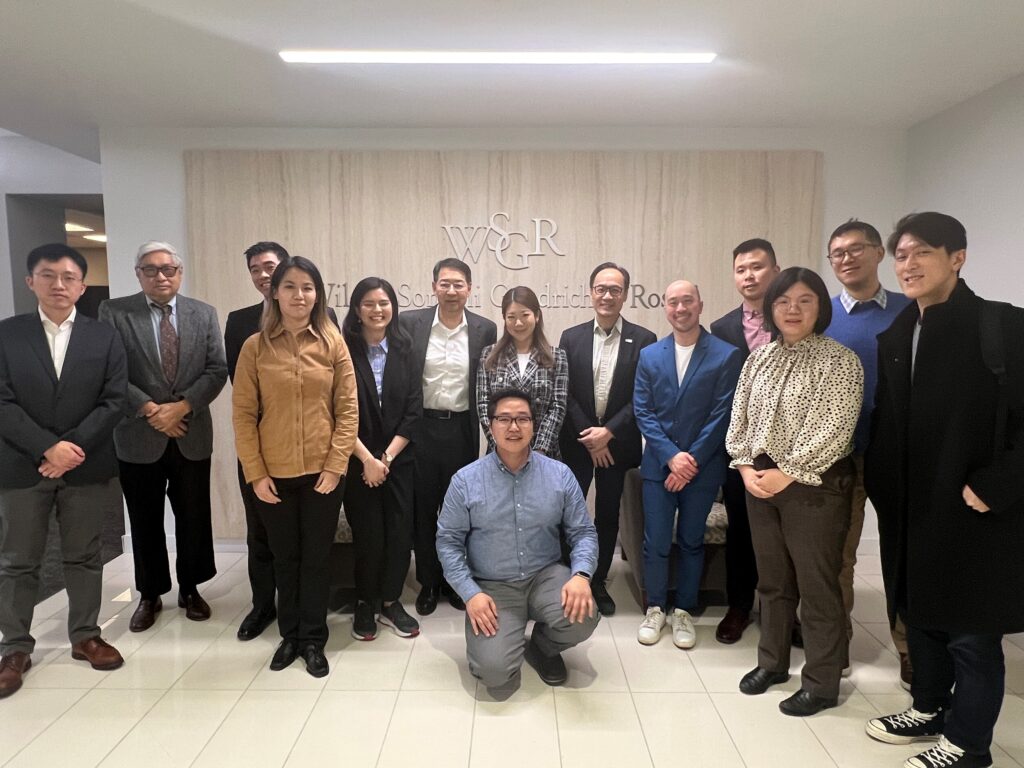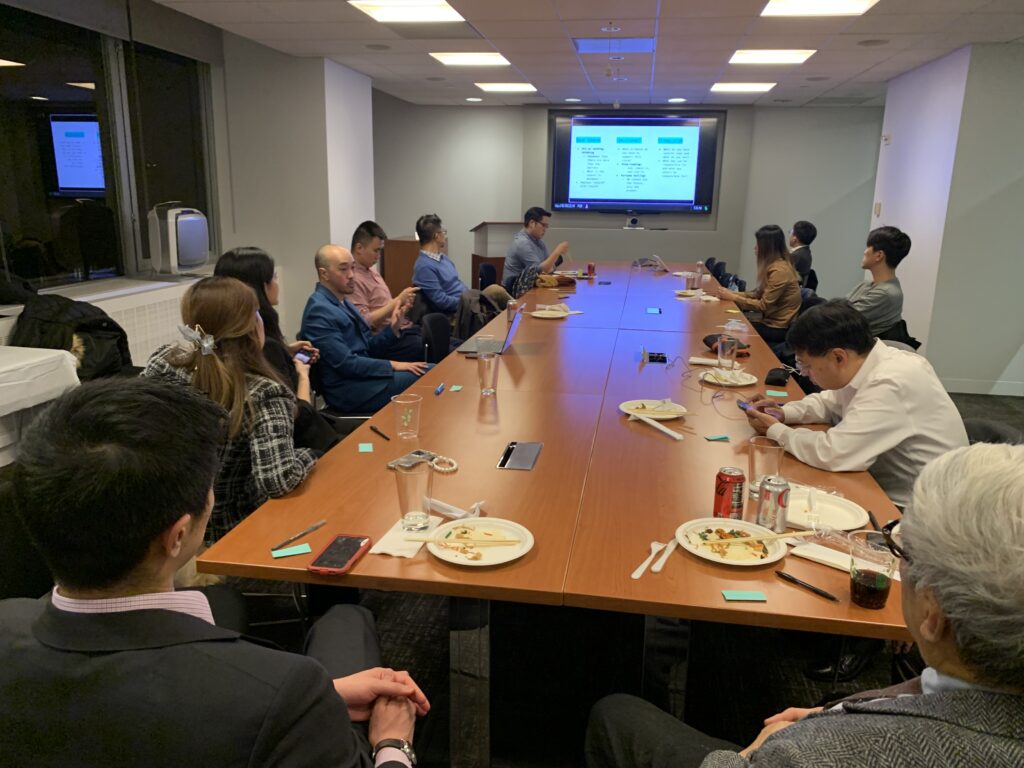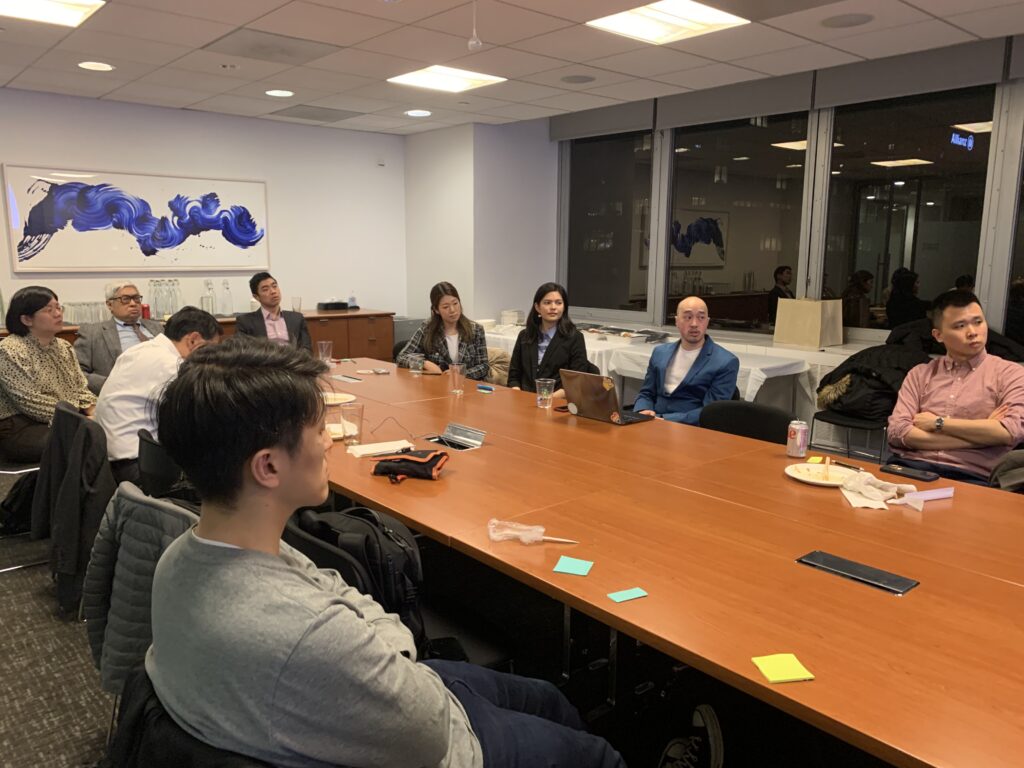
The legal profession is notorious for its high-stakes nature, demanding workloads, and a culture that often glorifies perfectionism. In an effort to address the mental health challenges faced by lawyers and law students, AABANY’s Young Lawyers Committee and Student Outreach Committee presented on February 1 “The Self-Compassionate Lawyer: Reclaiming Power Over the Pursuit of Perfection.” This program was held at the New York office of Wilson Sonsini and brought together legal professionals and students for an insightful and interactive presentation by Dr. Matt Poon. It reflects the theme for this fiscal year, “Embracing Wellness and Well-being: Strengthening the Legal Profession by Investing in Ourselves.”
Dr. Poon delved into the deep-seated contributing factors that drive individuals in the legal field toward the pursuit of perfection. Attendees gained an understanding of the benefits and consequences associated with such pursuits, emphasizing the importance of recognizing and addressing these tendencies to foster a healthier professional life.
This interactive event didn’t shy away from the harsh realities of burnout and imposter syndrome within the legal profession. Participants engaged in a thought-provoking discussion and gained valuable insights into the significance of prioritizing mental well-being. Dr. Poon guided the audience through an exploration of cognitive biases and distortions linked to perfectionism. By understanding these thought patterns, attendees were empowered to challenge and reframe their perspectives, ultimately fostering a more realistic and compassionate approach to their professional and personal lives.
A highlight of the event was the exploration of Dr. Kristin Neff’s groundbreaking work on self-compassion. Dr. Poon provided practical insights into incorporating self-compassion into daily life, equipping participants with a powerful tool to counteract the detrimental effects of perfectionism.
In line with the event’s goals, participants left with a toolbox of skills and tools to effectively manage self-imposed expectations, pressure, and criticism. Dr. Poon shared actionable strategies that could be readily applied in both personal and professional settings, such as meditation exercises, recognition of cognitive biases and thought patterns, and having a “defense team” in your own inner courtroom of self-criticism.
Beyond the enriching content, the program fostered a sense of community among attendees. We exchanged self-written sticky notes with affirmative words we would like to hear during difficult times, as a reminder to be our own best friends in times of adversity.


Thank you to AABANY’s Student Outreach and Young Lawyers Committees for organizing this event and to Wilson Sonsini for providing the venue. Thank you to the Student Outreach Committee Co-Chair, Vivian Lee, Young Lawyers Committee Co-Chairs Kwonsun Jung and Ada Wang, for putting this event together. To find more about Dr. Matt Poon’s work, please check https://www.drmattpoon.com/. To learn more about the Student Outreach Committee go here. To learn more about the Young Lawyers Committee go here.


